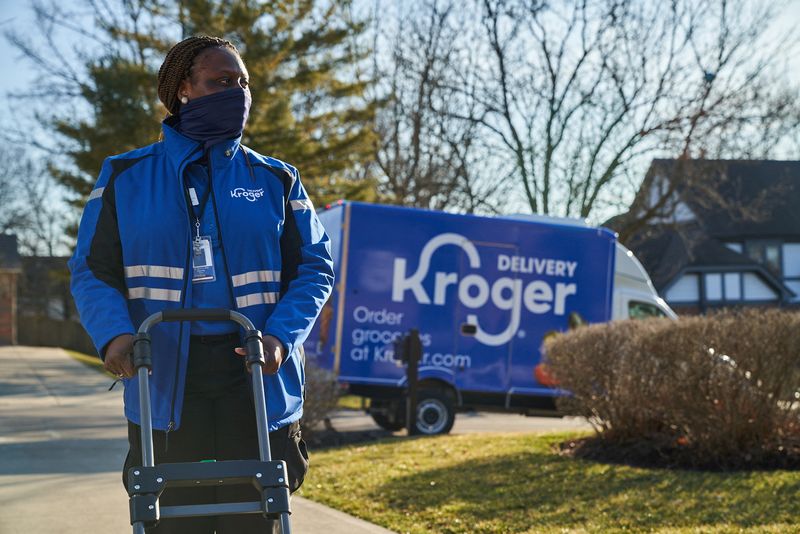By Chris Sanders
WASHINGTON (Reuters) - Grocery store chain Kroger (NYSE:KR)'s bid to buy its close rival Albertsons (NYSE:ACI) has caused alarm in the U.S. West, where officials fear its potential dominance - controlling more than half the market in some states - will hurt consumers.
The proposed deal would create a grocery empire with more than 4,000 stores across the US, and has drawn tough scrutiny from lawmakers and consumer groups worried about higher prices, job losses and store closures.
But the biggest opposition comes from Western markets, who make up six of the eight states that joined a Federal Trade Commission lawsuit on Monday to stop the deal. They cut across ideological lines, from politically conservative Wyoming to more liberal states like California and Oregon.
While Kroger argues it needs the deal to take on big national rivals like Walmart (NYSE:WMT) and Amazon.com (NASDAQ:AMZN), in several Western states it will be by far the biggest player.
“One of main reasons grocery prices have skyrocketed is that too few chains dominate grocery retailing," said Stacy Mitchell, co-executive director of the Institute for Local Self-Reliance. She added the deal could send "supermarket prices even higher by eliminating competition in many local markets."
California and Nevada shoppers already pay the highest weekly grocery bills in the United States and officials from both states fear the merger could increase prices even more.
The new company would own more than 50% of the grocery stores in Washington and make up just under half of grocery sales in Arizona, the attorneys general of each state have warned separately.
"Arizona consumers will see higher prices in the long run with one company controlling over half the supply," said Hitendra Chaturvedi, who teaches supply chain management at the Arizona State University.
"Limited number of companies result in decreased choices, increased prices, and decreased quality for customers in the long run."
Kroger has promised lower prices for customers, that no stores will close, and that no jobs will be lost. They argue that only non-unionized retailers like Walmart and Amazon will benefit if the merger is blocked.
In the Northwest, Kroger and Albertsons will account for about 57% of tracked visits to grocery stores, according to research firm Placer.AI, and "appear poised to lead" the grocery space in the five-state region made up of Idaho, Montana, Oregon, Washington, and Wyoming.
In California, where nearly 900 stores will come under one owner, residents currently pay just under $300 a week for groceries, well above the national average of $270.21, according to an analysis of Bureau of Labor Statistics data by HelpAdvisor.
The United Food and Commercial Workers union noted that in Los Angeles and Orange counties, 115 of 159 Albertsons stores are located within two miles of a Kroger, leaving them susceptible to closures if Kroger fails to keep its promise to keep stores open.
Kroger is selling 413 stores across 17 states including California, Washington, and Arizona to C&S Wholesale Grocers in an effort to ease antitrust concerns.
If the two companies defeat the FTC bid to halt the deal, about 70% of the national retail food market would be controlled by Walmart, Kroger-Albertsons, and Costco (NASDAQ:COST), according to antitrust legal scholar Christine Bartholomew.

Kroger needs the deal to compete with big rivals, said Kevin Boeh with the University of Washington's Foster School of Business. "The synergies of combining will cut overhead costs and will increase buying power over suppliers, both of which will allow them to pass on lower costs."
(This story has been refiled to fix punctuation in the Placer.AI company name in paragraph 11)